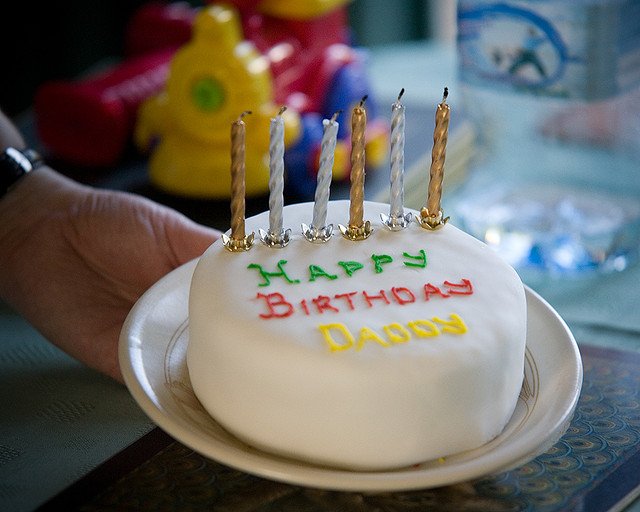While divorce and the demands of our society can pull families apart, the rituals we share as families can act as glue to bond us together. One of the things which makes each of our families unique is the special traditions we share as a family.
Family rituals are particularly important for children dealing with major changes in their lives as a result of divorce. The rituals provide a sense of stability and continuity for children and adults during divorce and other periods of upheaval. While the term “family traditions” sometimes conjures up images of elaborate, expensive events or special occasions, the truth is, family traditions can be very meaningful even when they are quite simple.
Protect Your Child’s Well-Being: Schedule a Family Law Assessment with an Attorney Now.
So what is a family tradition? When two or more people who care about each other and want to spend time together create a ritual – that’s a family tradition. Couples who share a cup of coffee each morning as they leisurely read the newspaper are enjoying a family tradition. In our home, before each family dinner, we light candles and one of our children says grace. For us, this is a great transition from the hectic pace of the day to the slower, gentler pace of our family meal together.
You don’t have to be the “stereotypical family” to enjoy rituals. Single people who gather with their “family of friends” for an annual weekend getaway enjoy a family tradition. It’s not what the activity is or who is participating, or even how frequent the ritual is – just that it is something special you share with your loved ones.
Sometimes the peace that the family ritual provides makes lasting memories that overshadow the times that are not so peaceful. A friend of mine who grew up in a household with an alcoholic father, told me one of his fondest memories during his childhood was making popcorn (the old-fashioned way in a pan on the stovetop) and sitting together in the living room with his parents and four siblings on Saturday night to watch the western television show Gunsmoke while sipping the most prized treat of all — a soda pop.
Family rituals are also a way to celebrate a sense of belonging and togetherness of the immediate family as well as the extended family. They help us mark important occasions—imprinting them in our memories for a lifetime. These rituals give us a sense of being part of a larger whole. I overheard my daughter’s friend talking about how much he loved Thanksgiving and Christmas dinners. He animatedly talked about all of the different food choices he enjoyed and how one aunt would bring the best homemade bread, while another brings apple pie that melts in your mouth. He seemed particularly pleased to be able to eat from “fancy” dishes with linen tablecloths and napkins. I’m sure his mother would be happy to know what pleasure her efforts bring to her young son.
Certainly, our participation in rituals brings us a connection to the life that goes on around us — a shared commitment to each other and our lives together. One of the most special rituals parents can participate in each evening is to read their child a story, tell a story or (if the child is older) talk about their child’s day. This is especially important for a parent who travels a lot, or lives away from his/her child due to relocation or divorce. The simple act of calling at the same time each evening and engaging in the ritual of reading, storytelling or talking brings a sense of security and stability to all who participate. It also is a way for families to celebrate their togetherness.
As parents, we should try to include a variety of rituals in our lives so that we can have focused, family time to share the things that are important to us. We can plan some of them for big or small occasions. But it is also important for us to be open to new rituals that evolve as our families mature. Some friends of mine used to play board games or cards with their children in the evening after their homework was done. They said this was the best time to “learn about their day” and how their children were feeling without asking direct (probing and intrusive) questions. The conversation just flowed and the bonding wasn’t forced. Now that the boys are teenagers, their family plays ping pong together after the homework is done. The children look forward to the friendly competition and the parents are happy to have a daily activity that brings laughter and closeness – pure quality time that enriches their family.
If each family member has some input, the rituals become even more meaningful. One idea a family developed was to create a “family activities box” – or a collection of activity ideas written down by family members. Each week a different family member chooses an activity (that the other members agree on) such as mini golf, movie, bike ride, etc. This has become a fun way to empower all family members to guide the ritual and ensure that the family spends a couple of hours of each week doing things together. With so many factors pulling families apart, making a conscious effort to practice family rituals helps bring families together for quality time that will likely be remembered for decades to come.
Charles D. Jamieson, Esquire, is the founding partner of The Law Firm of Charles D. Jamieson, P.A. in West Palm Beach, Florida. He has practiced family law for more than 25 years and has represented individuals or acted as a legal consultant in divorce and child abuse cases throughout Florida, as well as in more than 20 states during his career. Mr. Jamieson can be reached at cdj@cjamiesonlaw.com or by calling (561) 478-0312.



